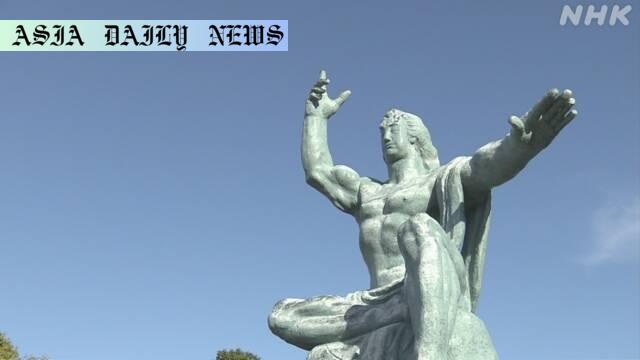Peace ceremony: Israel’s ambassador to Japan will attend the Nagasaki peace marker on August 9, emphasizing mutual respect and peace.
Israeli Ambassador to Japan will attend Nagasaki Peace Ceremony on August 9.
The event highlights the remembrance of the US atomic bombing of Nagasaki in 1945.
Nagasaki formally invited all countries and regions with representatives in Japan this year.
Russian and Belarusian Ambassadors, previously excluded, will also be present.

Understanding the Significance of International Presence at Nagasaki’s Peace Ceremony
The annual peace ceremony held in Nagasaki on August 9 serves as a poignant reminder of the catastrophic impact of nuclear weapons. This year’s event expands upon its commitment to global representation, inviting all countries and regions with embassies in Japan. Among the attendees will be Israel’s ambassador, Gilad Cohen, marking an important moment of restored diplomatic participation.Nagasaki’s decision to include diverse representation stems from its renewed vision for a globally unified remembrance. Ambassadors from major nations, including the UK, Russia, and Belarus—previously excluded—signify a shift in the city’s approach to foster international dialogue surrounding peace.
Why Israel’s Participation Represents a New Diplomatic Tone
Last year’s exclusion of Israel due to the aim of maintaining calm underscores the meaning of this year’s inclusion. Israeli Ambassador Gilad Cohen’s announcement at the Foreign Correspondents’ Club in Tokyo amplified the respect and solidarity between Japanese and Israeli citizens. His sentiments reflect a broader aspiration—one where peace takes precedence over historical tensions.In a global landscape riddled with conflicts and nuclear challenges, the choice to reinstate Israel among this year’s attendees resonates as a diplomatic reassurance. Strides in fostering communication, even amidst complex histories, underpin Nagasaki’s dedication to global unity.
The Global Implications at Nagasaki’s 2023 Ceremony
As nations commemorate those affected by the tragic 1945 bombings, this year’s ceremony takes on heightened significance. By inviting Russia and Belarus back to the ceremony, despite political sensitivities, Nagasaki reinforces its unwavering commitment to transcending borders for universal peace. Echoing the sentiments of unity, representatives like British Ambassador Julia Longbottom will affirm international solidarity regardless of previous absences.The 2023 Nagasaki peace ceremony emerges as a tapestry interwoven with diverse voices, fortifying its standing as a lens through which the world’s commitment to peace continually evolves.



Commentary
The Significance of Global Representation
The inclusion of ambassadors from a range of nations at Nagasaki’s Peace Ceremony speaks volumes about the power of unity in history’s most weighty moments. As local memories fade, the presence of diplomatic figureheads can serve as an enduring reminder of the horrors of nuclear warfare for new generations to come.
Israel’s participation, after being excluded, illustrates how nations navigate the complexity of international relationships while prioritizing shared values like peace and mutual understanding. It underscores a shift in the ceremony’s tone—from one of restrained reflection to an open, collective mourning and education.
Israeli Representation – A Step Forward in Diplomacy
The return of Israeli Ambassador Gilad Cohen to Nagasaki not only marks a diplomatic thaw but also highlights an intention to stage a gesture of goodwill. By participating in ceremonies steeped in historical gravity, Israel sets an example, emphasizing shared human narratives over individual geopolitical agendas. Gesture-based diplomacy, particularly in regions defined by historical wounds, cannot be overlooked in its capacity to rebuild trust.
Universal Remembrance in Action
Perhaps the most striking element of this year’s ceremony is the direct endorsement of inclusivity. All embassies in Japan were encouraged to participate—an approach firmly rooted in the global yearning for peace. This inclusivity presents a stronger narrative that connects experiences of war and peace more universally. For a world still marred by violence and systemic challenges, events like this remind us of the collective responsibility to prevent history from repeating itself.